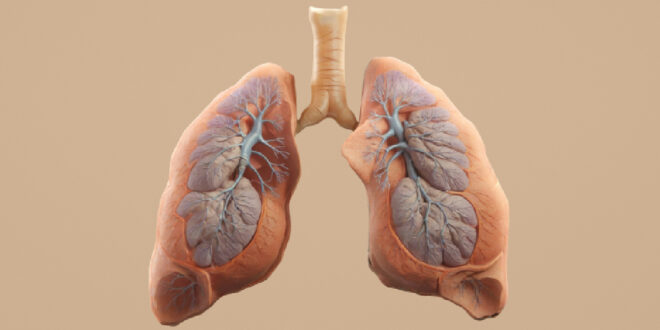Asthma and other respiratory disorders have become increasingly common in recent years, affecting millions across the globe. From seasonal allergies to chronic bronchitis and asthma, breathing problems not only affect physical health but also reduce the quality of life significantly. While modern medicine offers relief through inhalers and medications, many are now turning towards ancient holistic systems like Ayurveda to seek long-term healing and natural relief. In this comprehensive blog, we delve into how Ayurveda for Asthma and respiratory disorders offers effective treatments, lifestyle practices, and natural remedies that work in harmony with the body.
What is Asthma?
Asthma is a chronic inflammatory disease of the airways. It causes episodes of wheezing, breathlessness, chest tightness, and coughing, especially at night or early morning. Asthma is triggered by allergens, respiratory infections, physical activity, cold air, stress, and air pollutants. It can range from mild to life-threatening, and while there is no cure, it can be managed with proper treatment and preventive care.
How Ayurveda Understands Asthma and Respiratory Disorders
Ayurveda, the ancient Indian system of medicine, attributes asthma and respiratory issues to an imbalance in the doshas—Vata, Pitta, and Kapha. Specifically, asthma is generally classified as a Kapha-Vata disorder. Here’s how Ayurveda interprets the condition:
- Kapha Dosha is responsible for mucus production. When Kapha is aggravated, it leads to excessive mucus accumulation in the lungs and respiratory tract.
- Vata Dosha governs air movement. When aggravated, it causes dryness and constriction in the bronchioles, leading to wheezing and shortness of breath.
This condition in Ayurveda is known as “Tamaka Shwasa“, a type of Shwasa Roga (respiratory disorder). Ayurveda treats the root cause by balancing the doshas, cleansing the system, and strengthening the lungs through herbs, diet, detoxification, and lifestyle changes.
Causes of Asthma According to Ayurveda
Ayurveda identifies the following as root causes for asthma:
- Poor digestion (Mandagni) – Leads to the formation of toxins (ama) that accumulate in the lungs.
- Allergies and exposure to irritants – Pollutants, dust, and cold air increase Kapha.
- Unhealthy diet – Excessive intake of cold, heavy, fried, and dairy-rich foods.
- Lifestyle factors – Sedentary lifestyle, lack of exercise, irregular sleeping habits.
- Emotional stress – Anxiety and tension can aggravate Vata and trigger asthma attacks.
Types of Shwasa Roga in Ayurveda
According to Ayurvedic texts, there are five types of Shwasa (respiratory disorders):
- Maha Shwasa (Severe difficulty in breathing)
- Urdhva Shwasa (Breathing in difficulty)
- Chinna Shwasa (Irregular breathing)
- Tamaka Shwasa (Bronchial asthma)
- Kshudra Shwasa (Mild breathlessness)
Among these, Tamaka Shwasa is considered chronic and often compared with asthma. It tends to recur frequently and is closely associated with allergic reactions and environmental triggers.
Ayurvedic Treatments That Work for Asthma
1. Herbal Remedies
Ayurveda for Asthma is incomplete without powerful herbs known for their respiratory-healing properties:
a. Vasaka (Adhatoda vasica)
Known for its mucolytic and bronchodilator action, Vasaka helps clear mucus and ease breathing.
b. Tulsi (Holy Basil)
Tulsi possesses anti-inflammatory and immunomodulatory properties, helping reduce asthma symptoms.
c. Yashtimadhu (Licorice)
Soothes the respiratory tract and reduces inflammation, often used in herbal decoctions.
d. Pippali (Long Pepper)
Enhances lung function and detoxifies the lungs.
e. Haridra (Turmeric)
Has strong anti-allergic and anti-inflammatory properties that help prevent asthma triggers.
f. Pushkarmool (Inula racemosa)
Traditionally used in asthma treatment, this herb acts as a natural bronchodilator.
2. Panchakarma Detoxification
Panchakarma is a cornerstone of Ayurvedic healing. It involves five therapeutic procedures that detoxify the body:
- Vamana (Therapeutic Emesis): Effective in Kapha-related disorders, it clears excess mucus from the lungs and stomach.
- Virechana (Purgation): Helps balance Pitta and cleanses the liver and intestines.
- Nasya (Nasal Therapy): Medicated oils are administered through the nostrils to clear sinus congestion and improve breathing.
- Abhyanga (Oil Massage): Enhances circulation and strengthens the respiratory system.
- Swedana (Herbal Steam): Opens up the respiratory channels and helps in mucus drainage.
These therapies purify the respiratory system and balance the doshas contributing to asthma.
3. Ayurvedic Formulations
Some classical formulations used in Ayurveda for Asthma include:
- Sitopaladi Churna
- Talisadi Churna
- Kantakari Avaleha
- Chyawanprash
- Dashmoola Kwath
- Agastya Rasayana
- Shwas Kuthar Ras
These formulations are made using a combination of herbs and minerals tailored to reduce inflammation, improve immunity, and manage symptoms.
Diet and Lifestyle Recommendations
Diet and lifestyle play a crucial role in preventing asthma attacks and reducing the severity of symptoms. Ayurveda recommends the following:
Dietary Guidelines
- Avoid cold, oily, fried, and dairy-rich foods.
- Favor warm, light, and easily digestible meals.
- Include ginger, turmeric, cinnamon, and black pepper in cooking.
- Drink warm water or herbal teas throughout the day.
- Avoid eating heavy meals late at night.
- Reduce sugar and refined carbohydrates.
Lifestyle Tips
- Follow a regular sleep and wake cycle.
- Practice light breathing exercises (Pranayama).
- Avoid exposure to dust, pollen, smoke, and pollutants.
- Use humidifiers if the air is dry.
- Avoid excessive physical or emotional stress.
Pranayama and Yoga for Asthma
Yoga and Pranayama (breathing exercises) are highly effective in controlling asthma. They strengthen lung capacity, reduce stress, and regulate breath. Some beneficial practices include:
1. Anulom Vilom (Alternate Nostril Breathing)
Balances Vata and calms the nervous system.
2. Bhramari (Bee Breathing)
Reduces stress and promotes relaxation of bronchial tubes.
3. Kapalbhati (Skull Shining Breath)
Helps in detoxification and improving lung function.
4. Ujjayi (Oceanic Breathing)
Improves oxygenation and soothes the respiratory tract.
5. Yoga Asanas:
- Bhujangasana (Cobra Pose)
- Matsyasana (Fish Pose)
- Setu Bandhasana (Bridge Pose)
- Dhanurasana (Bow Pose)
Note: All exercises should be practiced under professional guidance, especially during acute asthma phases.
Scientific Support for Ayurvedic Asthma Treatments
Modern studies are increasingly validating the effectiveness of Ayurveda for Asthma. For instance:
- A study published in the Journal of Ayurveda and Integrative Medicine found that Ayurvedic herbs like Vasaka and Pushkarmool significantly improved lung function.
- Clinical trials using Sitopaladi Churna showed decreased asthma symptoms and improved respiratory efficiency.
- Nasya therapy was found beneficial in reducing sinus congestion and improving breathing patterns.
While more large-scale studies are needed, preliminary findings are encouraging and support integrating Ayurvedic care alongside conventional medicine.
When to See a Doctor
While Ayurveda offers a holistic and natural approach, it’s crucial to consult a qualified Ayurvedic practitioner for a personalized treatment plan. Those with severe asthma should not abruptly stop conventional medications. Ayurveda can be used as a complementary therapy alongside modern treatment for better results.
Conclusion: The Promise of Ayurveda for Asthma
Ayurveda presents a time-tested and holistic approach to managing asthma and respiratory disorders. By addressing the root causes, detoxifying the system, and restoring dosha balance, Ayurveda provides a sustainable pathway toward respiratory wellness. From herbal remedies to Panchakarma detox, dietary discipline to yogic breathing, the ancient science emphasizes prevention, balance, and harmony.
Whether you’re seeking natural alternatives or want to complement your existing asthma treatment, embracing Ayurveda for Asthma could transform your respiratory health in ways you never thought possible. With consistent practice and proper guidance, breathing freely may no longer be just a hope—but a natural reality.
 Well Health Organic
Well Health Organic




